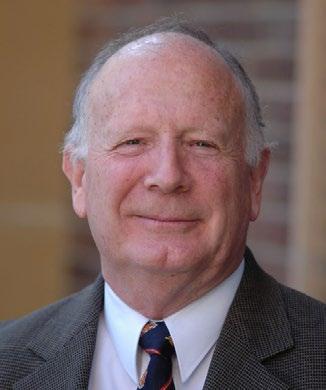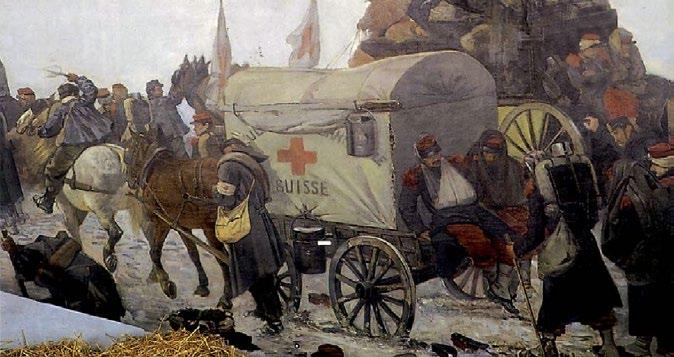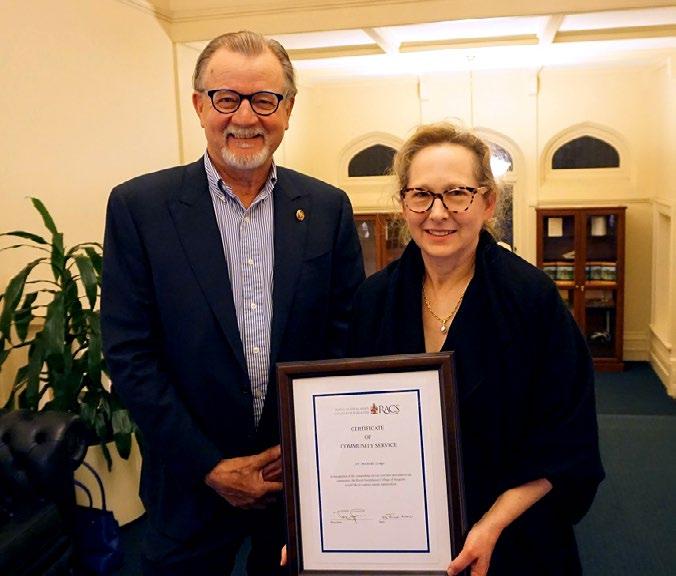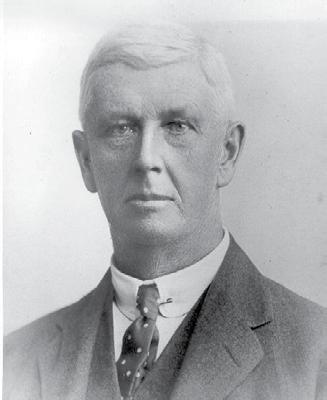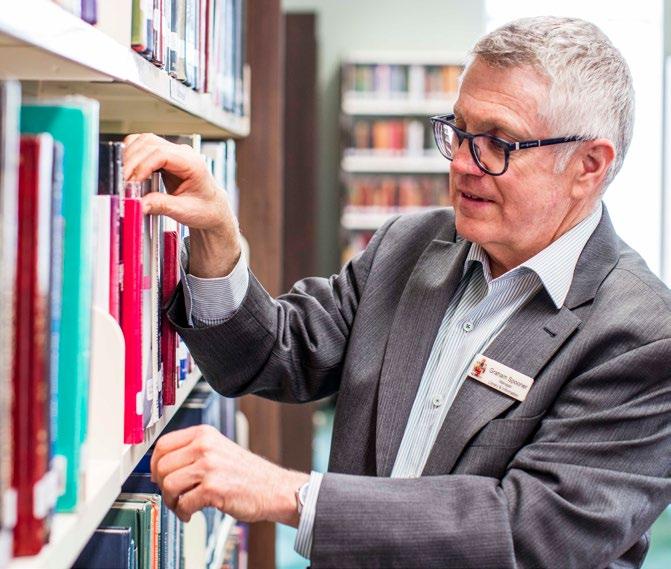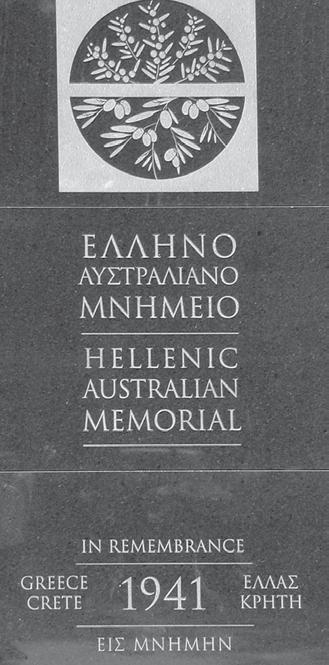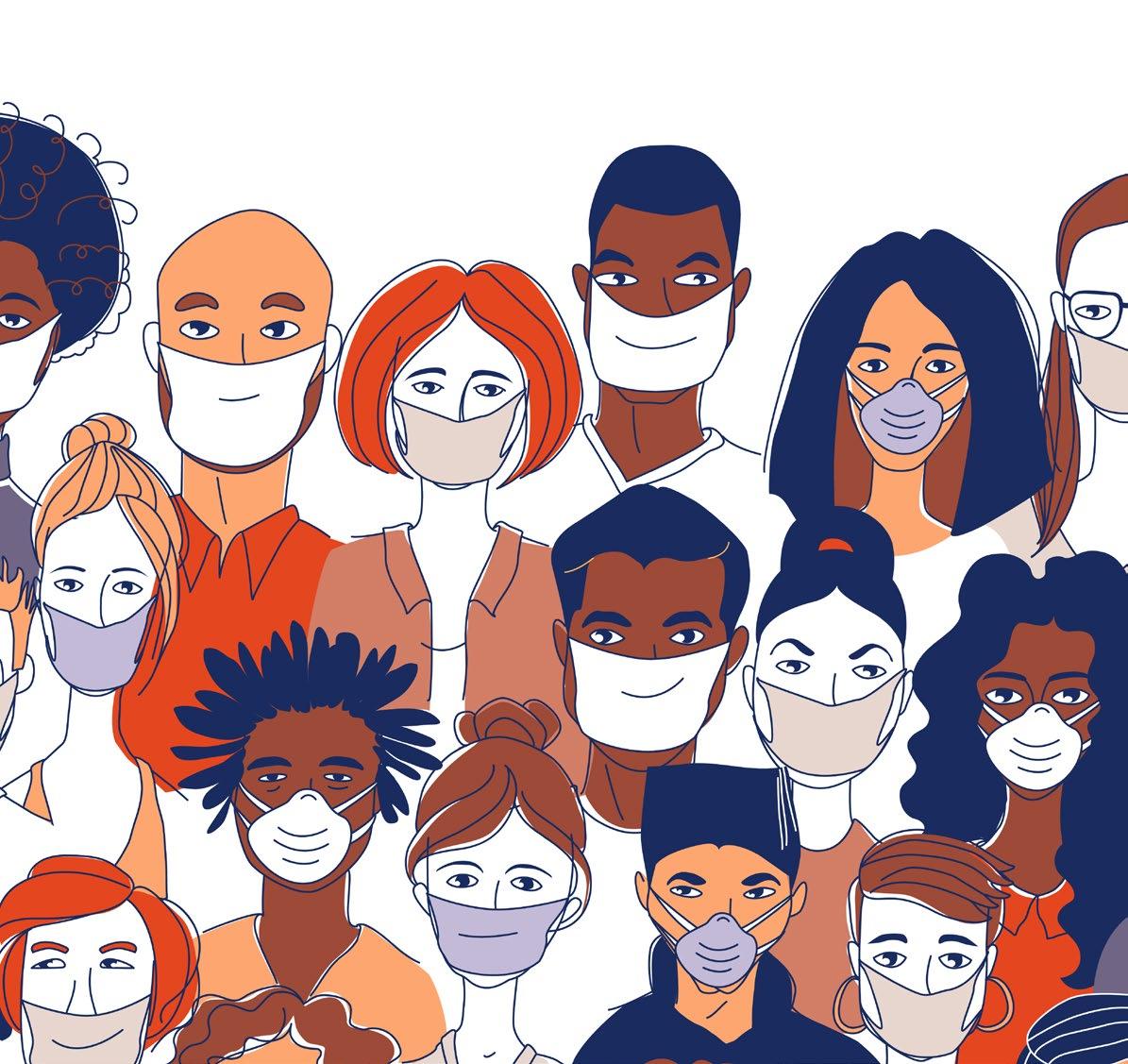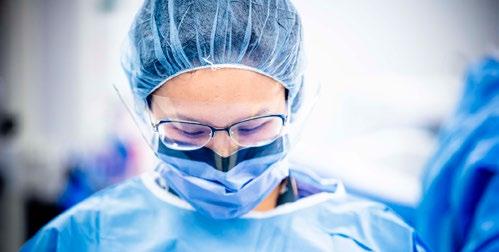
8 minute read
New Fellows enjoy rural placement
New Fellows enjoy rural placement opportunities
Dr Priya Nandoskar and Dr Michael Basedow commence pilot program in Cairns and Darwin.
Advertisement
Two new Fellows are thriving in their placements at the Royal Darwin Hospital and Cairns Hospital, through the New Fellow Rural Placement Pilot. The purpose of the pilot, funded by the Australian Government Department of Health’s Specialist Training Program (STP), is to provide a New Fellow (within the first two years of practice post-Fellowship) with a comprehensive, high-quality experience in a rural location that will help them consolidate their skills and encourage them to consider working in a rural setting long term. On 1 April 2020, Dr Michael Basedow and Dr Priya Nandoskar commenced the pilot in Cairns and Darwin, respectively. Dr Basedow was keen on working in the North Queensland Tropics; meanwhile, Priya travelled north from South Australia after guidance from her mentor, Royal Australasian College of Surgeons Councillor Dr Christine Lai. Dr Basedow (over page) began his medical career at the University of Queensland then he focused in working in developing areas, with some experience on Bamaga, at the tip of Cape York, and in Vietnam. He also had quite a few experiences during education and training in regional and tropical parts of Queensland. Cairns is a popular gateway for tourism in tropical North Queensland, with the Great Barrier Reef, the Daintree Rainforest and Port Douglas relatively close by. “I’ve always been an admirer of Australia’s outdoor beauty,” Dr Basedow said, “and when I think about it, I get to live in a place that most people consider a tourist destination.” However, for people living in Cairns, accessing the same level of health care as those living in urban centres is challenging. Cairns has a significant Aboriginal and Torres Strait Islander population, as well as people living in rural communities who often present with complex and interesting cases that require surgical attention. Additionally, due to the city’s geographical location and proximity to island nations, tropical diseases that are not seen elsewhere in Australia are present in the region. This makes work for Dr Basedow fascinating. He advocates for the New Fellow Rural Placement as a way of both attracting surgeons to work in rural areas, and providing professional development opportunities that are complex and interesting. Remote medicine and outreach to the Torres Strait Islands has enriched Dr Basedow’s experience as a surgeon. He has welcomed the opportunity to work remotely on Thursday Island. In one instance, Dr Basedow arrived by plane to find a young male with acute apendicitis. Rather than moving him to another location, Dr Basedow was able to perform the surgery immediately. Dr Basedow hopes the impact of the program on the community will be a positive one. He is hopeful it will encourage new surgeons to spend at least a few years in rural Australia, serving the community. Dr Basedow also hopes that those surgeons will gain a greater understanding of what can be done in these settings and that they’ll come back in the long run. In the Northern Territory (NT), the story is similar for Dr Nandoskar (right). While Darwin is the capital city of the NT, it is also considered a rural location. To the Australian public, Darwin is the tourism gateway to Kakadu National Park, and Australia’s WWII history, while a ride on the Ghan Train can quickly find you in Alice Springs and Uluru. For people living in Darwin, the Royal Darwin Hospital is their major health service. In fact, it is the primary health service for the NT, and as the Katherine region is home to a significant Aboriginal population, this presents Dr Nandoskar with opportunities to do outreach services and learn more about Indigenous health. During her placement, she is tutoring an Indigenous student on a weekly basis though Flinders University. Dr Nandoskar’s interest in surgery was sparked when her friend fractured a hand during basketball at school. While concerned for her friend, she found that, instead of experiencing horror like everyone else, she was curious. This curiosity continued through medical school, where Dr Nandoskar was interested in the practical solutions in medicine and wound management. Most of her training was in Victoria, through the Geelong network, which gave her a taste of rural surgical experience.
Dr Michael Basedow

Earlier in 2020, Dr Nandoskar was considering an overseas Fellowship to gain new skills and experiences. When COVID-19 restrictions were applied to Australia, she decided to stay in the country and participate in the placement on advice from Dr Lai. By April 2020, she was recruited to the Royal Darwin Hospital. “Since I arrived, it has been the best weather,” Dr Nandoskar boasted about Darwin. Despite her original plans to go overseas, Dr Nandoskar has had a great experience. In the future, she is hoping to work at least part time as a rural surgeon. Dr Nandoskar advocates for the pilot. “I certainly think this is a fantastic idea for anyone considering a rural career. The support is great, the surgeons look after one another and the case mix is very interesting,” she said. In a rural setting like Darwin, the training environment offers much more one-onone supervision and mentoring, and this is helpful to those wanting to develop skills for rural surgery. “I’m sort of the step between the Trainees and the true supervisors, the consultants,” Dr Nandoskar said. This dual position offers her support

from senior clinicians while gaining experience in supervising juniors. Both surgeons believe the pilot is an excellent opportunity for anyone considering careers in rural surgery. The broad exposure to subspecialties, Indigenous health, interesting cases and community support in and out of work is a real advantage to working in rural Australia.
In 2019, RACS received 17 Expressions of Interest from hospitals around Australia, and we hope this interest continues to grow. As this is a pilot, it will not continue in the 2021 clinical year. Once the pilot has been thoroughly evaluated, the Department of Health will decide about the future of the program based on reporting and evaluation from RACS. The New Fellow Rural Placement is funded by the Specialist Training Program (STP), an initiative of the Australian Commonwealth Department of Health.
Putting you at the centre: the One College Transformation
How we are advancing your needs In the last issue of Surgical News, we provided an update on the progress made by the One College Transformation team over their first 12 months. To help us support the implementation of the program,we developed a narrative for the College and provided key messages for the main transformation streams – Technology, People and Culture and Governance. Following are a few key messages that clearly illustrate the intent of the transformation program and outline the benefits you can expect. We’re transforming the ways you engage with the College and putting you at the centre of the experience Over the next few years we will be transforming and improving the technology, learning and development, governance and service delivery of the College to meet modern expectations of the surgical profession. Our new member management system will enable you to access information and services, move between platforms more intuitively and provide better personalisation to address your needs.

We are enhancing our current Portfolio system in stages with the tools offered by Microsoft Dynamics 365. This will provide significant benefits such as reliable storage and updating profile information and preferences. The new eHub will offer an efficient method of capturing your interactions with the College, including registrations, events and exams – all these interactions will be stored on one platform. Most importantly, eHub will establish the ‘golden record’ or a single view of your profile across the College. The ‘golden record’ will be the single source of truth, providing us with a record of your activities that, in turn, will enable us to provide more personalised services, such as suggesting courses you might be interested in, given your specialty. We’re reducing inefficiency to improve value for you and have a shared purpose to see this through We are making sure our staff are trained and equipped to support you by ensuring each interaction adds value. We have established a digital workplace initiative to promote collaboration across the College and enhance business processes by reducing manual work, enabling College staff to better cater to your needs. The introduction of technology, such as SharePoint Online, Microsoft Teams, Planner and One Drive will improve productivity and relationships between our staff and you, our members. Microsoft Teams, in particular, will give us new ways of working, of which the College has already had a steep learning curve, given the quick escalation of the COVID-19 pandemic. We need your contribution to shape surgery’s future We need more diverse voices that represent the different specialties, locations and practices of surgery. We are working to exceed the diversity targets in our committees so we can hear from more people. We are also making sure the committee member selection process is transparent. We are moving to a contemporary model of governance and removing internal roadblocks for approvals. We are putting in place clearer and shorter approval pathways for recommendations. This will minimise duplication and delays and help get committees’ recommendations heard and actioned by the Council, reducing the waiting time for new initiatives to be carried out and, ultimately, benefiting the surgical community. Shorter council agendas will ensure important issues are heard and decided on in a timely manner. We need our Fellows, Specialist International Medical Graduates and Trainees to be involved in and contribute to the transformation program. This transformation is making the College more open and inclusive, giving you many new opportunities to engage and make an impact. We will let you know how you can participate in pilot reviews for the 1CT program. If you have any questions, please email 1CT@surgeons.org.

